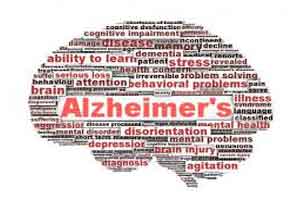- Home
- Editorial
- News
- Practice Guidelines
- Anesthesiology Guidelines
- Cancer Guidelines
- Cardiac Sciences Guidelines
- Critical Care Guidelines
- Dentistry Guidelines
- Dermatology Guidelines
- Diabetes and Endo Guidelines
- Diagnostics Guidelines
- ENT Guidelines
- Featured Practice Guidelines
- Gastroenterology Guidelines
- Geriatrics Guidelines
- Medicine Guidelines
- Nephrology Guidelines
- Neurosciences Guidelines
- Obs and Gynae Guidelines
- Ophthalmology Guidelines
- Orthopaedics Guidelines
- Paediatrics Guidelines
- Psychiatry Guidelines
- Pulmonology Guidelines
- Radiology Guidelines
- Surgery Guidelines
- Urology Guidelines
Regular Benzodiazepines use increase risk of Alzheimer's disease

Even though the increased risk for Alzheimer's disease was small in this study, the threshold for prescribing benzodiazepines and related drugs should be high enough due to their several adverse effects and events, such as falls. These medications are commonly used for sleep problems, but their effectiveness for this indication diminishes over weeks or months. However, the risk of adverse events remains in longer-term use.
The study was conducted in the nationwide MEDALZ cohort which included all Finnish community dwellers with newly diagnosed Alzheimer's disease in 2005-2011 (70,719 persons), and their age, sex, and region of residence matched controls (282,862 persons). Medicine use since 1995 was extracted from the Finnish Prescription Register. Many chronic disorders, substance abuse, socioeconomic position and use of antidepressants and antipsychotics were taken into account. To account for reverse causality, drug use within 5 years before Alzheimer's disease diagnosis was not taken into account.
For details click on the link: http://dx.doi.org/10.1111/acps.12909

Disclaimer: This site is primarily intended for healthcare professionals. Any content/information on this website does not replace the advice of medical and/or health professionals and should not be construed as medical/diagnostic advice/endorsement or prescription. Use of this site is subject to our terms of use, privacy policy, advertisement policy. © 2020 Minerva Medical Treatment Pvt Ltd